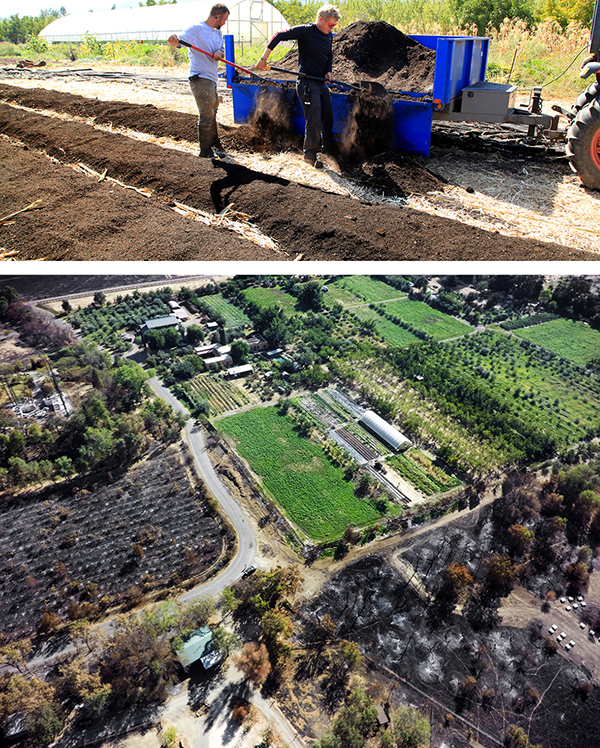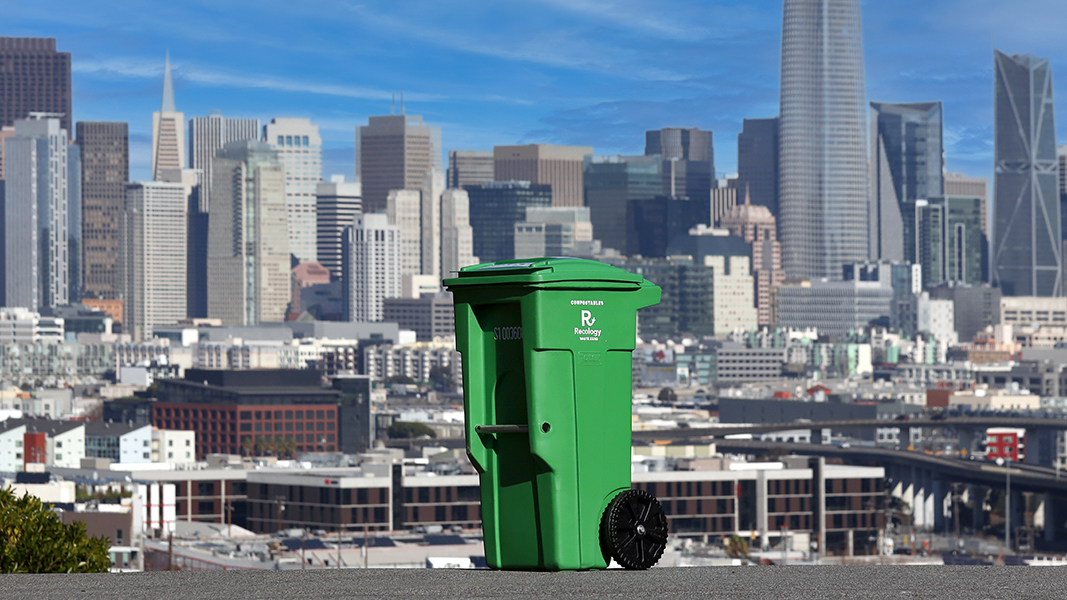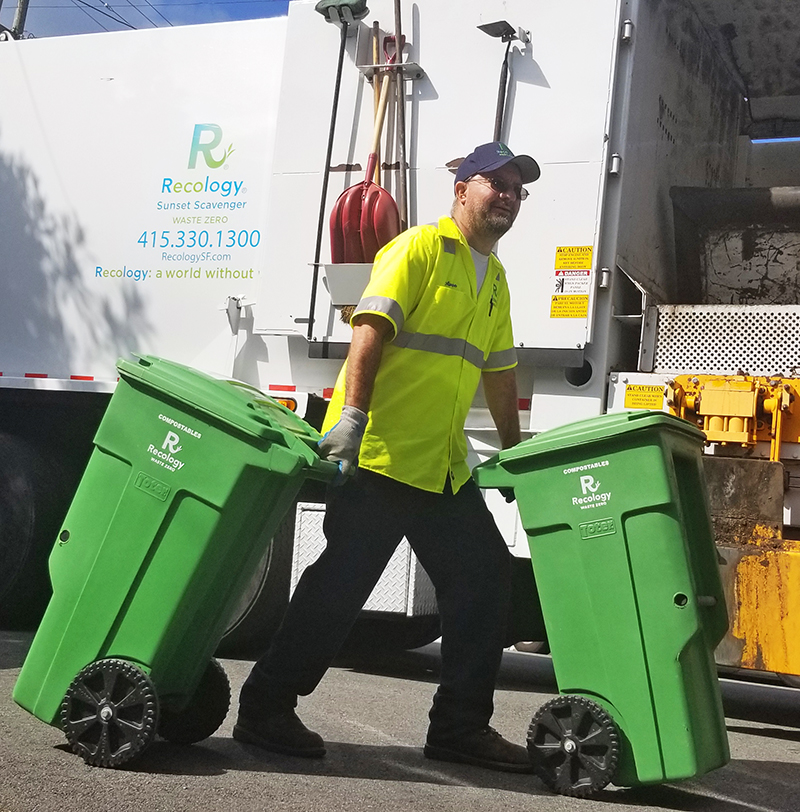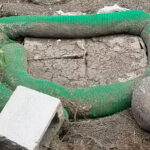Top: Photo by Larry Strong, courtesy of Recology
This year marks the 25th year that San Francisco residents and businesses can place their food scraps and yard trimmings in green bins at the curb for collection and composting. Recology, the city and county of San Franciso’s solid waste services provider, has worked with the San Francisco Department of Environment since the mid-1990s on the organics diversion program. “The City asked Recology to see if we could collect food scraps for composting and if San Franciscans would participate,” recalls Robert Reed, Recology’s public relations manager. “We started at the wholesale produce market in spring 1996. Within two months, we began collecting food scraps at some of the largest hotels in San Francisco. We ran a pilot program in the Richmond District and asked residents to put their vegetable peelings, coffee grounds, and other compostable discards in green collection bins. In 2001, city officials instructed Recology to make curbside collection available to all properties on a voluntary basis. We delivered thousands of green bins. In 2009, the City passed an ordinance making the program mandatory, and everyone got on board.”
Recology brings collected organics from San Francisco to its new 216-acre composting facility, Blossom Valley Organics, near Vernalis, California. In the early years, the company brought materials to its Jepsen Prairie facility in Vacaville. The program has kept 2.5 million tons of material out of the landfill, adds Reed. “The finished compost goes onto vineyards and orchards and helps farms grow high quality food and save water. These farms also use San Francisco compost to grow mustard and other cover crops that pull carbon and nitrogen from the atmosphere and sequester carbon deep in the soil.”

Compost application at Be Love Farm near Vacaville, CA (top). The aerial image (above) shows land around Be Love Farm burned by the Hennessey Fire in August 2020. Photos by Larry Strong, courtesy of Recology.
One example is Be Love Farm and B&B near Vacaville, owned by Matthew Engelhart. Be Love has been using San Francisco compost for many years, in large part because it helps keep moisture in the soil. The importance of moisture retention was put to the ultimate test at Be Love the night of Aug. 18, 2020 when the Hennessey Fire scorched the Vaca Mountains and rolled down hillsides into Pleasant Valley, notes Reed. “The fire destroyed hundreds of structures and burned to the edges of the farm. Sparks and embers from the fire ignited wood chips around the base of Matthew’s trees, but the fire did not take the farm thanks, in part, to Be Love’s healthy soil. Matthew had irrigated his land and the humus and organic matter in his topsoil held water near the surface.”














